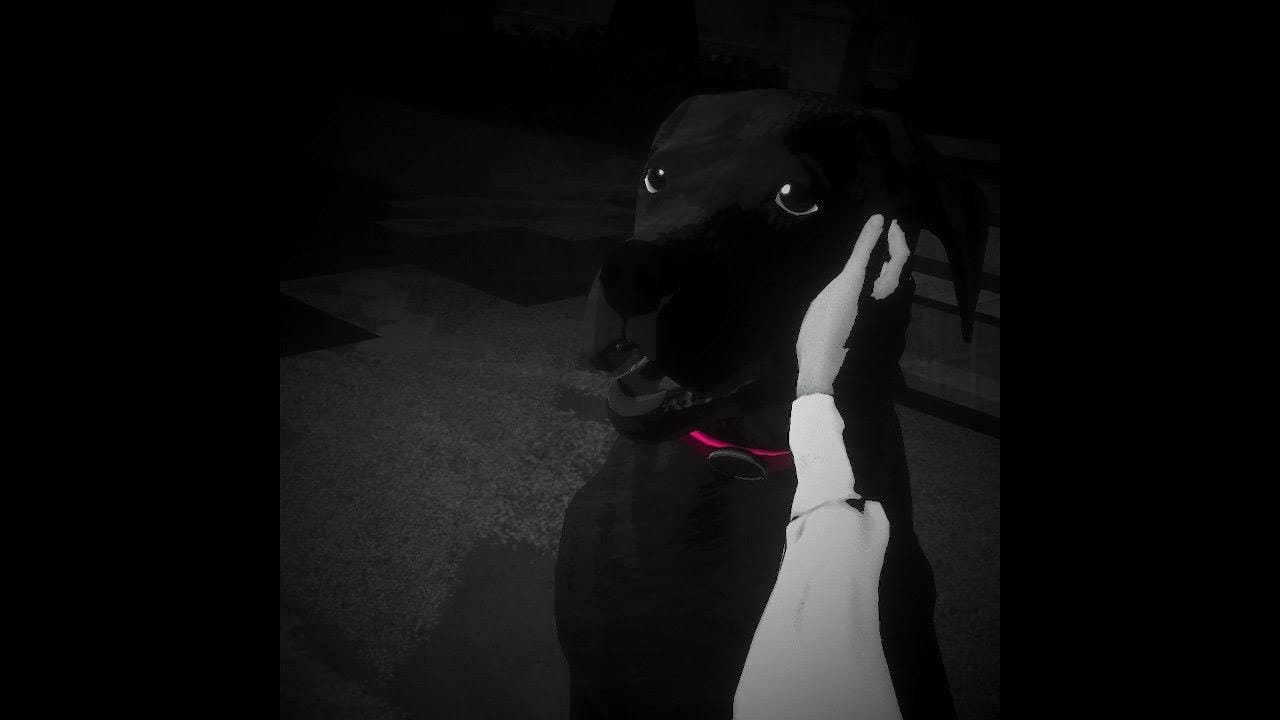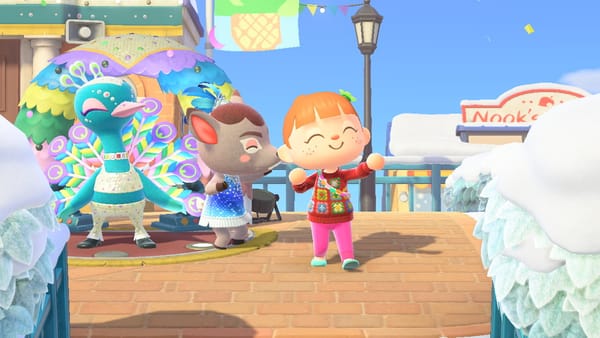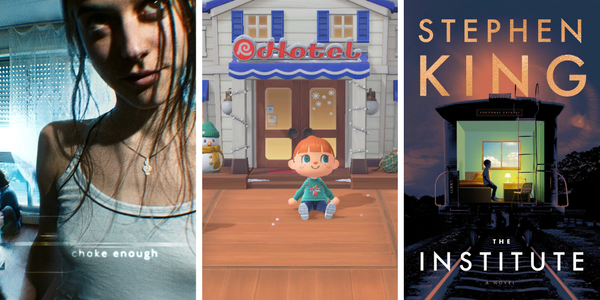Review: Lorelei and the Laser Eyes
the goal of this game is to find the truth.
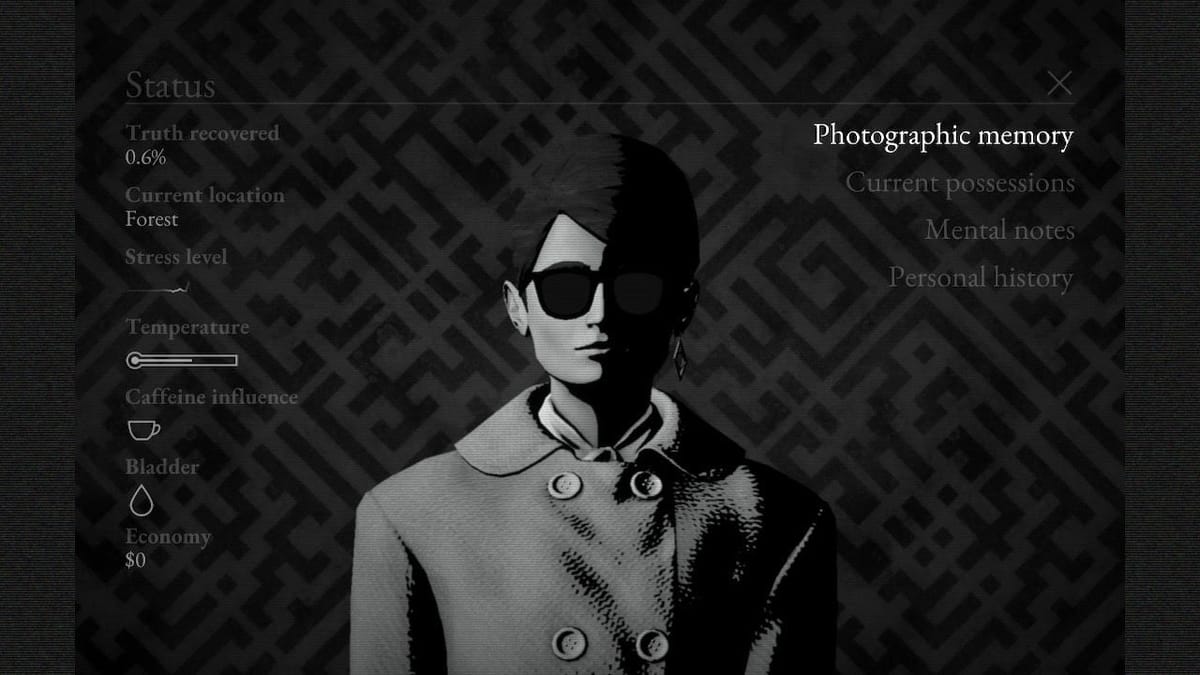
I was thinking about that little burst of review discourse we had recently. You might have heard it at the time. It stemmed from one guy who suggested all reviewers should take on a ridiculously detailed scoring system for every game we review. I won't link to it because it's kind of over now. (For good measure, my semi-serious opinion on review scores is this: get rid of them. Burn it all to the ground. No more exhausting arguments about IGN 7's or whatever. Surely we cannot keep having the same discourse over and over again until we all grow old and die.)
But when my husband and I finished Lorelei and the Laser Eyes the other night - bleary-eyed, exhausted, and overwhelmed - I couldn't help but think about review scores again. How on earth would a game like Lorelei fit into that scoring metric? And how on earth would I even begin to review it without giving anything away?
I'm doing it anyway, because I can't really not talk about it. Here we go:

At the start of Lorelei and the Laser Eyes, you find yourself as a sharply-dressed woman standing next to a car. In your purse are two items: tampons (I recommend reading this piece by Ana Diaz for Polygon about that), and car keys. In the car there is an instruction booklet, which I would pay good money to own in some sort of physical form, alongside a letter dated 13th of December 1962: Signorina. I am expecting your arrival at the Hotel Letztes Jahr on January 7th next year.
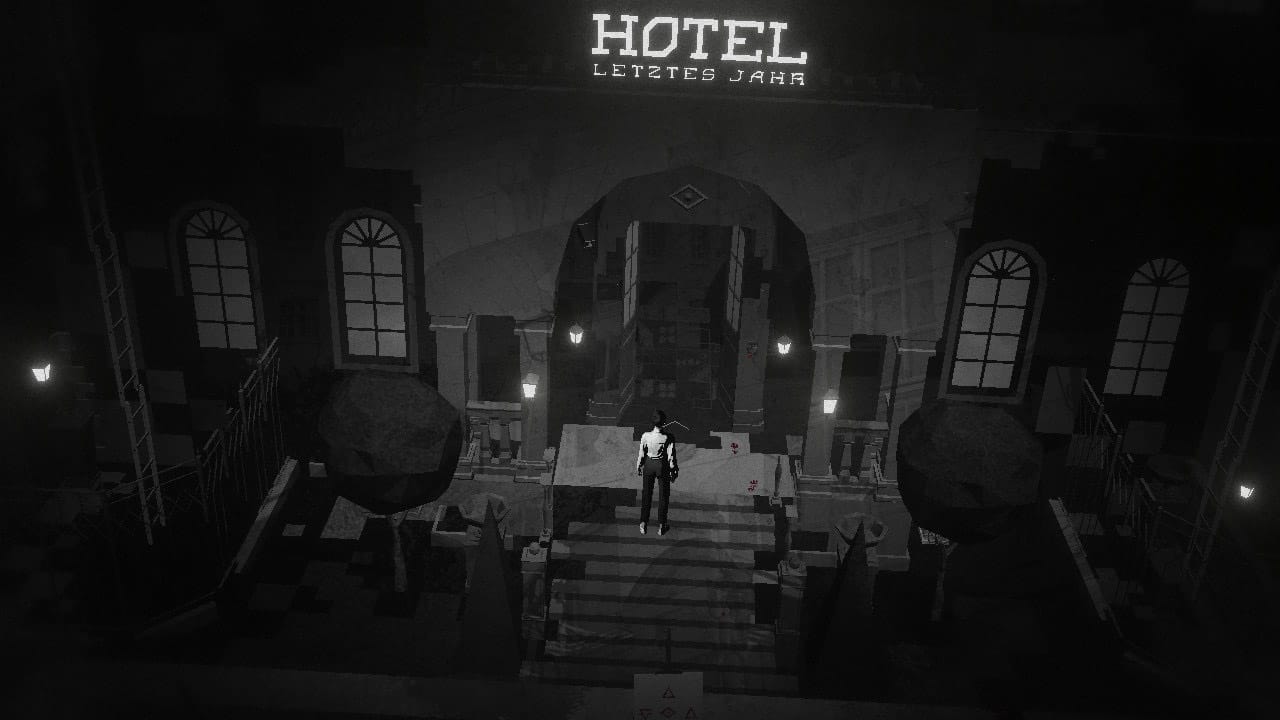
The manual explains what to do. The goal of this game is to find the truth. And so you leave the car and make your way to the Hotel Letztest Jahr.
The hotel is perplexing. Even near the end, finding specific rooms could be a bit of a challenge. (If I was playing it again for the first time I'd recommend taking notes about where things are. There's a hot tip for you.) There are shortcut doors you can unlock by solving puzzles from 'S.C. Bolt's Number Puzzles Volume 1', a book you find early in the game. This makes it a lot easier to get around, but there's something about the visuals that make it eyeball-strainingly difficult to see sometimes. But then again, I do have really shit eyes.
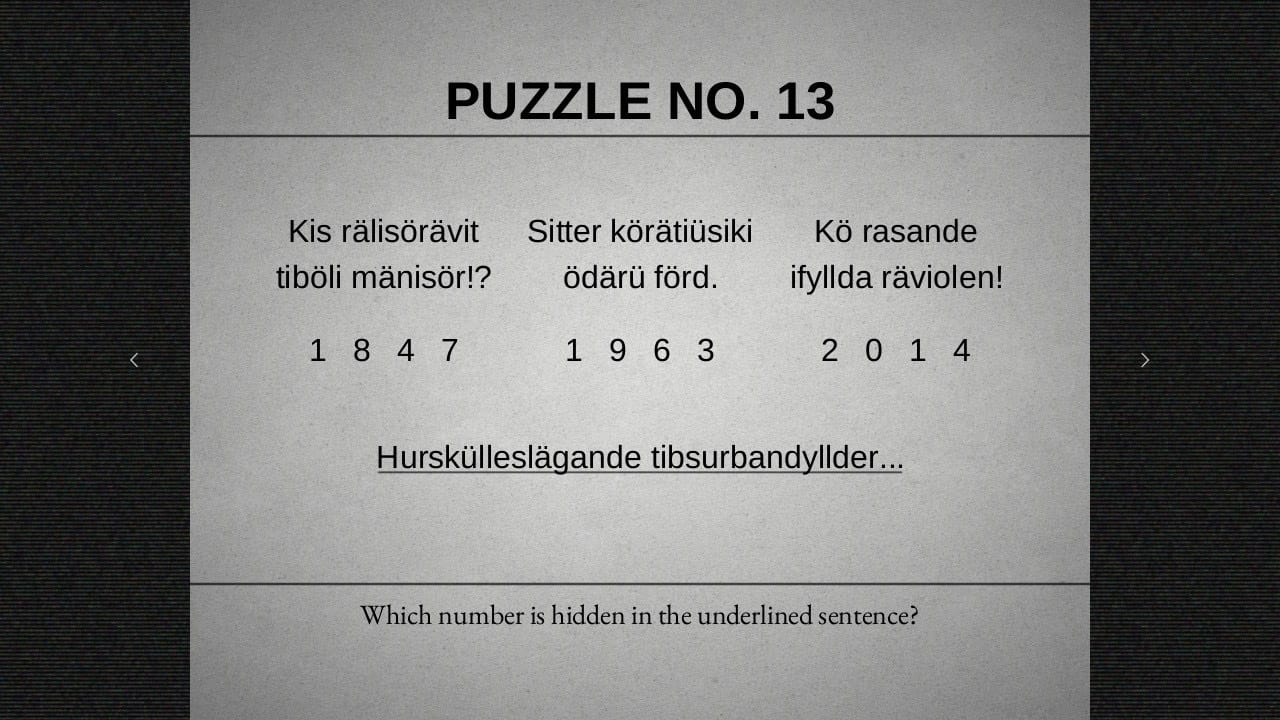
Even after nineteen hours, traversing the hotel one last time before the ending still felt eerie. There's a strange quality to it, as though you can never quite trust it, and it's not just because of the monochromatic graininess of the visuals. Occasionally, you'll bump into others at the hotel. This was never a completely comfortable experience; you only get to see one particular person at strange angles, only seeing the bottom half of their body, for example. Finding the truth involves a lot of surprises, and a fair bit of tension. The hotel and the beings within it are enigmatic, unforgiving, and at times, hostile.
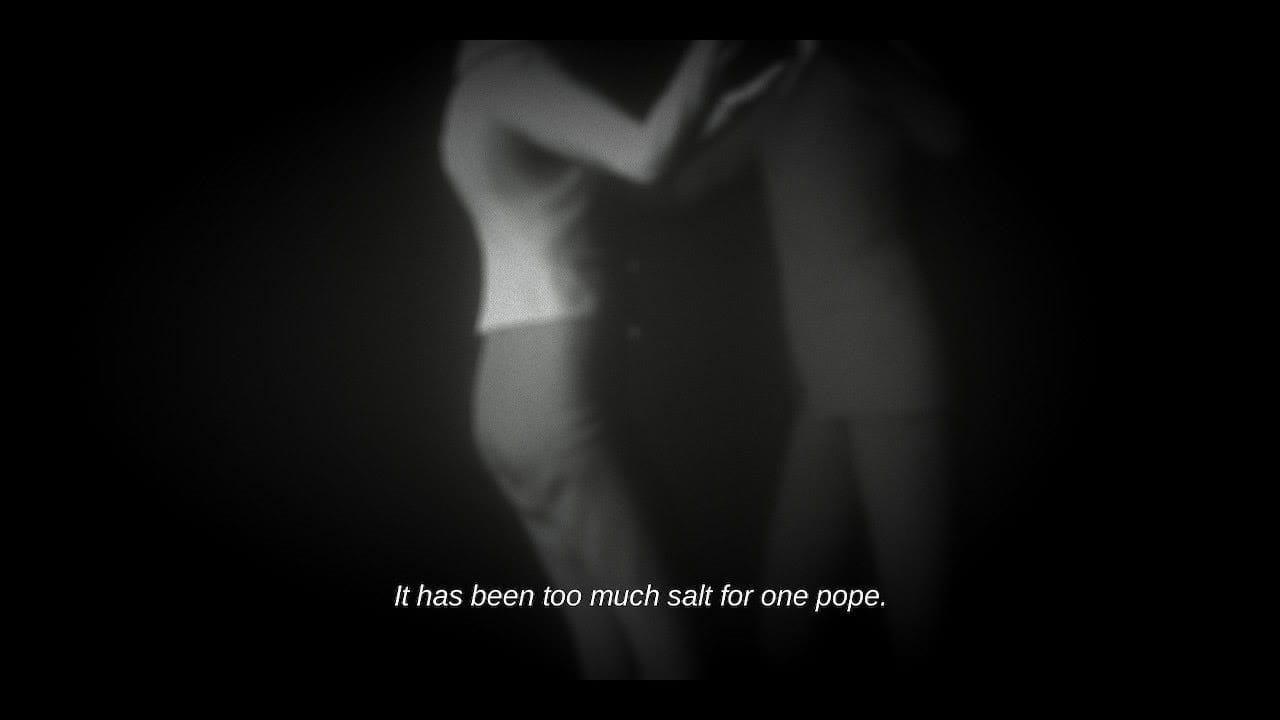
And also, finding the truth? Incomprehensible, at least at the beginning. You're bombarded with little snippets, and you have more questions than answers: what's with all the different years? What are these movie posters about? What on earth happened at this hotel, and have I got to do with it?
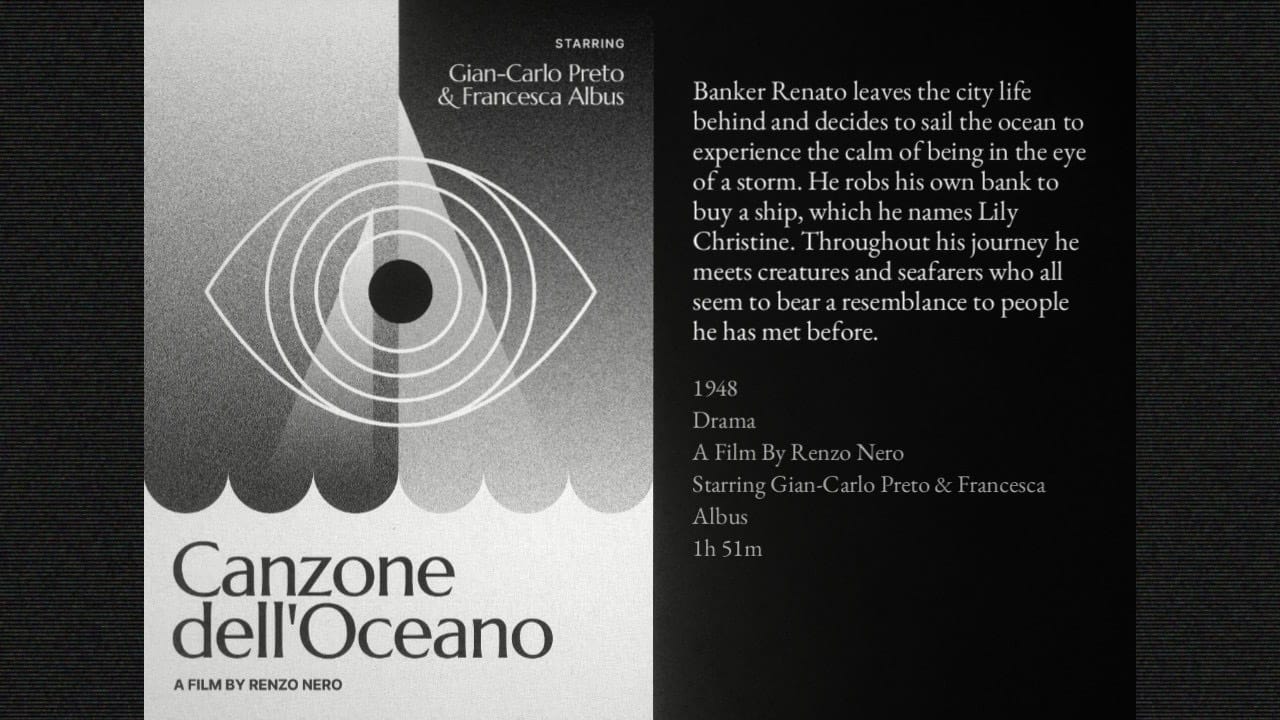
The lore keeps getting more complex as the game progresses. I would say, at least for the first part of the game, it's best not to overthink it. You won't understand it until you've found almost everything, and I probably wasted too much time feeling slightly frustrated that I wasn't able to piece the story together yet. I came to a state of acceptance similar to when I was reading Mark Z. Danielewski's House of Leaves: everything is overwhelming and I don't get what's happening, but for now I'm going to relax and enjoy the vibes. Perhaps it's different for everyone, but there was a moment near the end where almost all of it suddenly clicked: it felt as much of a triumph as solving the puzzles.
And the good thing about the puzzles in Lorelei is that if you're stuck, there are always more you can solve instead. At no point did we find we couldn't progress because we couldn't get the right answer; instead, when we realised we had absolutely no brain cells left with which to solve that particular puzzle, we left it and tried something else instead. There was one puzzle that we were stuck on for most of the game. We tried everything. Eventually, we realised we couldn't have answered it until we knew more about the story. Not to get all Nigella on you, but the moment when we both solved that puzzle together was absolutely sublime. Practically delicious. If I could bottle the feeling of having solved a puzzle after hours of feeling stupid about it, I'd absolutely sneak down into my fridge in the middle of the night to drink it when everyone else is asleep.
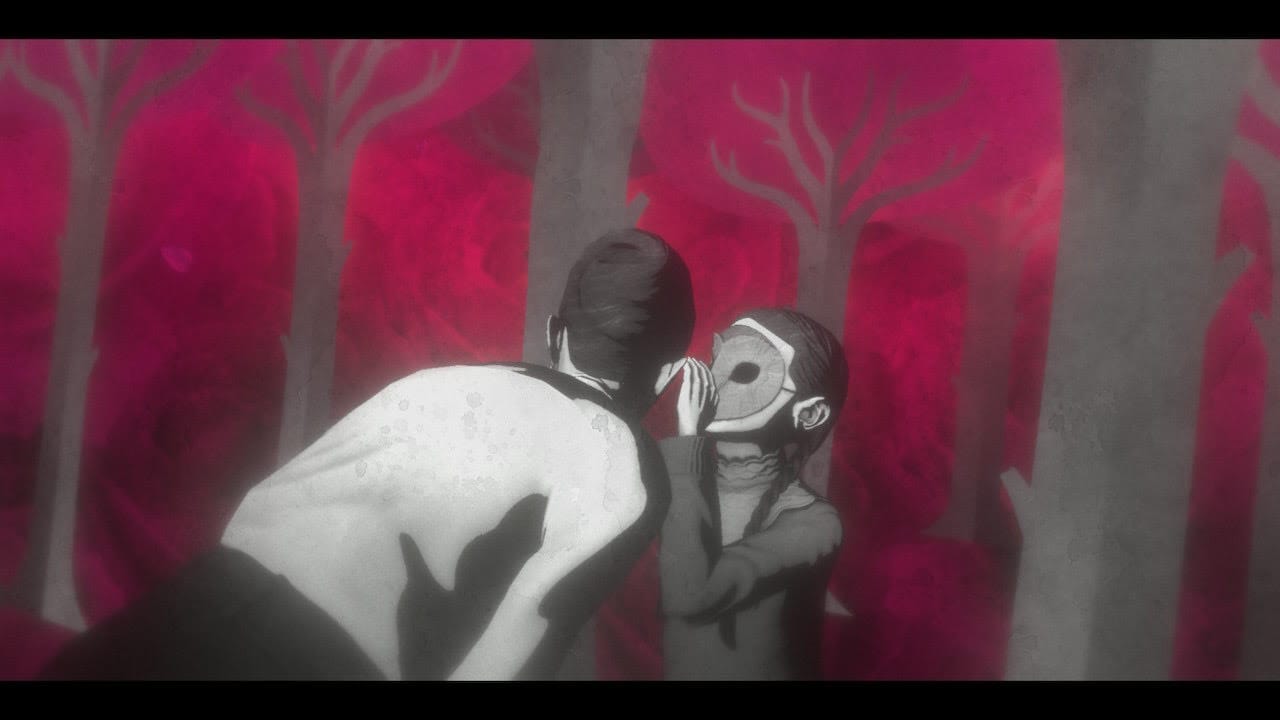
Anyway. The variety of puzzles is also brilliant, preventing you from being able to guess just because you think you know the game well enough by now: one minute you're pulling books off a shelf in a specific order, the next you're wandering around a maze trying to get your bearings with the perspective of a person looking through a smashed plane of glass. It just kept surprising me, right up until the very end.
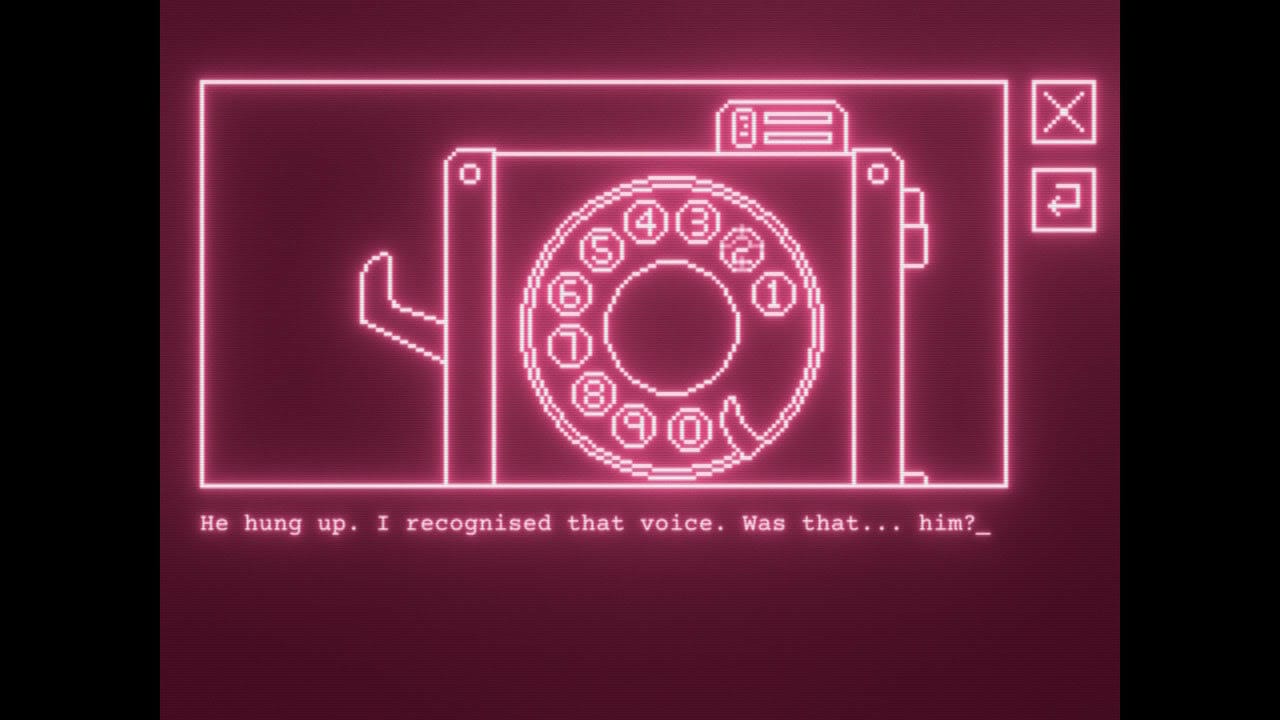
The ending builds to a spectacular crescendo that ties everything together, and feels a bit like a fun and particularly bizarre reading comprehension test. You'll realise, just before the ending, how incredibly clever the puzzles actually are, with items you found right at the start suddenly taking on new meaning right at the climax, making the eventual 'oh, now I understand' moments even more meaningful.
Lorelei has a lot to say about the nature of humans and how we relate to our own work; how we can lose ourselves in it, and whether that really matters in the end. And while I had some gripes - the game is weirdly unforgiving when it comes to user-friendliness, for example, by failing to provide a 'back' button, or not allowing me to pull up the map quickly when I needed it - this is an experience I'm not going to forget in a hurry.
One more thing. If you can play this with someone else, it's definitely a good idea: our brains work differently, after all, and what is completely obtuse to one person can be painfully obvious to someone else. Grab a notepad and a pen. Save often. And also? Don't look up the answers if you can help it. It's so much more satisfying that way.

There are some games I look back on with a weird sense of sadness mixed in with joy and respect. I think it's the knowledge that I'll never get to experience these games again for the first time. I could play Lorelei all over again, but what would the point be? I have solved the mystery of the enigmatic hotel. It's a one-time experience, perhaps. There will be part of me that wishes I could go back and play it again with fresh eyes, I expect. I felt it when I finished The Return of the Obra Dinn, I felt it when I finished Everybody's Gone to the Rapture, and I felt it when I finished Lorelei and the Laser Eyes. I've been questioning myself about why these games meant so much to me. Is it my own personal experiences affecting the way I interacted with them? Is it because they each told a story in such a stunning and unexpected way that they were always going to be special no matter what?
Who knows. Either way, you should pick up Lorelei and the Laser Eyes. Let us have more games that break through our expectations. Let us have more games that don't fit neatly into the boxes we make for them.
